Last year, Egyptian public opinion was dealt two major blows, triggering a vigorous debate on social and mainstream media. The first being when Dalia Al-Faghal, a self-identified lesbian came out on social media, sparking waves of criticism and demonization. The second was when two rainbow flags, a symbol of LGBTQ+ pride, were raised by attendees at a Mashrou’ Leila concert.
While the public reaction to both incidents was negative, the incidents did not evoke the same response in terms of state action, as well as public outrage. Gay men bore a more vicious, heavy-handed response from both the state and the media, overshadowing the narrative around lesbians.
Dalia’s public statement shed light on the obstacles gay women face in Egypt and more importantly: how many more Dalias does Egypt have?
“I am afraid to love”
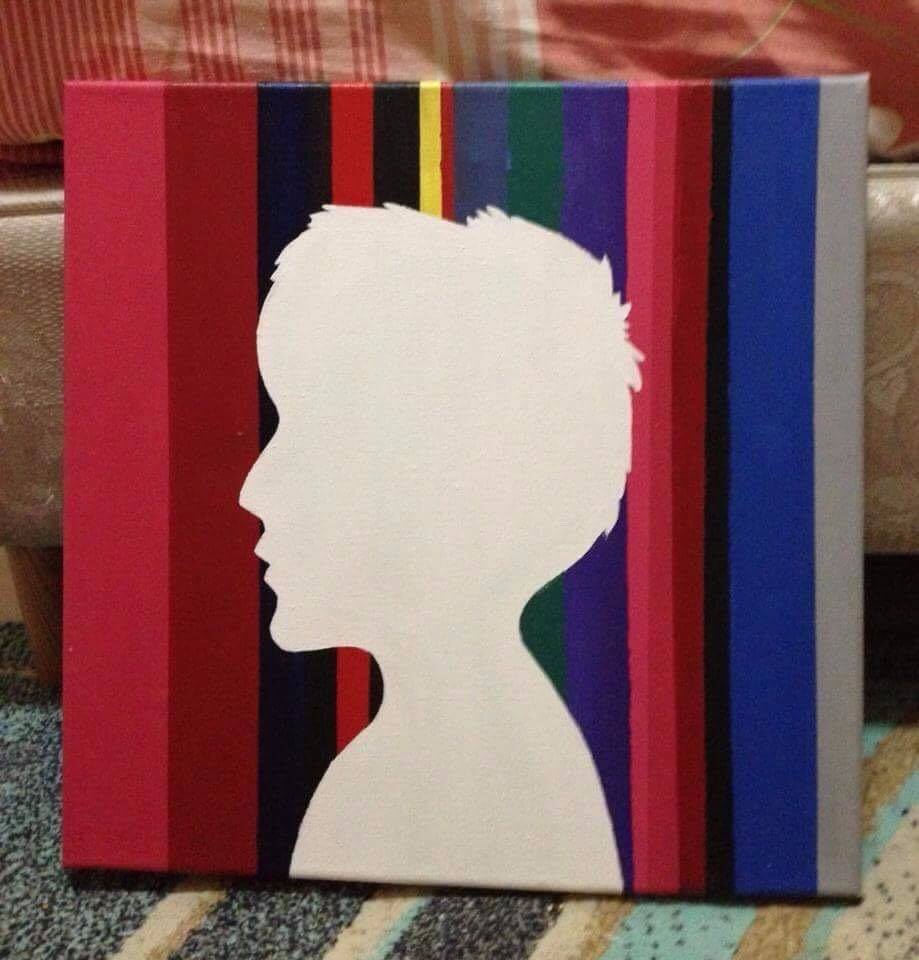
Hana,* a 19-year-old from Alexandria, spoke to Egyptian Streets about life as a gay woman.
“I am afraid to love. While love is supposed to be this peaceful feeling, I’m afraid to feel it because of the many awful things that could happen to me and anyone close to me,’’ says Hana.
Hana realized that she was gay by the age of thirteen.
“I was very perplexed at the beginning,” she explains, “Is it possible for a girl to like/love another girl without her being ‘sick’? I was curious, so I watched a lot of coming out videos [on YouTube], and I read a lot. I started knowing that it’s natural, it’s just not accepted in Egypt, which made sense to the 13-year-old me, since we’re in a Muslim majority country.”
“Three year ago, my brother and I were talking about the topic [LGBTQ+],” she recalls, “and he told me: if my sister, or any other family member is like that, I’d kill them.”
Hana is just one example of the many gay women who have faced death-threats from their families and loved ones. A Gender and Women’s Rights Officer at the Egyptian Initiative for Personal Rights (EIPR), who preferred to stay anonymous, told Egyptian Streets that gay women sometimes get in touch with EIPR to discuss mistreatment from family members, which involves “beating, humiliation, being locked up in the house, forced conversion therapy, forced institutionalized therapy, pressure to get married, being forced to give up education or jobs and reaching death threats.”
However, as most state and media attention is centered around gay men, one would imagine that gay women would find an easier time to meet each other, and create communities away from the public eye. This is not the case. In her book ‘Sex and the Citadel’, Shereen El Feki, an Egyptian-British journalist and author, expounds on the sense of seclusion experienced by gay women in Egypt due to the social forces that restrict their movement.
“It’s more difficult to be a lesbian than a gay man,” said Warda (one of the gay women who testified to El Feki).
“A gay man can go and come anytime. They can walk at night, they can move out anytime. They can be bachelors when they’re sixty and still be eligible. They can travel. They have a better chance of finding jobs. It’s a [being a] man that tips the scale, ” states Warda in Sex and the Citadel.
Sara*, is a 21-year-old living in Cairo who identifies as a queer, non-binary woman.
Queer is a broad term that could encompass both sexuality and gender expression. Some LGBTQ+ people choose to identify as queer instead of specific terms such as gay, lesbian or bisexual. Whereas non-binary means that the person does not identify strictly with what’s traditionally related to the ‘female’ or ‘male’ genders.
“As a non-binary person, I try to express myself differently. Like, this is a bit stereotypical, but I cut my hair almost completely. I barely ever put on makeup,” she tells Egyptian Streets, “And I love wearing clothes that don’t necessarily show what my body looks like (if I’m a male or a female). I constantly get harassed by everyone because of that, by people I know and people I don’t know.”
When asked about how she meets other women, Sara says that it’s safer for women to use dating apps, such as Tinder, to meet other women than it is for gay men. But she was also able to meet most gay women through certain spaces in her university. Meanwhile, Hana uses Twitter as the main way to find other women with whom she can identify with.
“I text the people I match with, and it’s mostly not small talk. [I] see their Instagram/Facebook accounts to make sure that this is actually them,” explains Sara regarding her experience on Tinder.
Paranoia is inherent to the lives of gay people in Egypt, as dating applications, such as Grindr, have been the main medium through which gay people get arrested. Policemen in Egypt are rumoured to create accounts under fake identities and arrange meetings with gay people. When the meeting takes place, the gay man is arrested by the police. According to EIPR, the conversation, amongst other things, is used as incriminating evidence by the undercover policeman.
Laws that are used to punish homosexuality in Egypt have loose definitions and are quite ambiguous, especially what is known as the ‘debauchery law’ (Rule No 10 for the year 1961), under which gay men are usually prosecuted for the “habitual practice of debauchery.” While debauchery in Arabic means Fujur (فجور), legally speaking its definition has changed over time.
This law has a long and convoluted history, as it was initially put into place in 1961 to combat prostitution (commercial sex between a man and a woman), but has been reinterpreted since the 1990s to include homosexuality, in a non-commercial sexual relation between two men. Egypt has always denied that it has “provisions that designate sexual perversion as a criminal offense,” as the speaker of the Egyptian House of Representatives told the European Parliament in 2003. But, Human Rights Watch has detailed in its report the myriad of ways homosexuality is criminally punished in Egypt, especially after the Court of Cassation set a precedent in 1975 when it criminally prosecuted two men for having a sexual relation, under the pretext of ‘habitual practice of debauchery’. Since then ‘debauchery’ has often been invoked to target gay men.
However, it is believed that gay women cannot be prosecuted for ‘habitual practice of debauchery’, according to the EIPR’s Gender and Women’s Rights Officer. This could be due to the Cassation Court’s definition of what can constitute ‘debauchery’, limiting it to same-sex conduct between men. Furthermore, there haven’t been any legal precedents where gay women have been prosecuted under the ‘debauchery law’. It remains unclear whether gay women could be prosecuted for ‘inciting indecency’ (Fisq (فسق) in Arabic), which is another way same-sex conduct can be punished in Egypt as per Article 269 bis of the Criminal Code.
“Men don’t accept us. They just think we’re sexy”
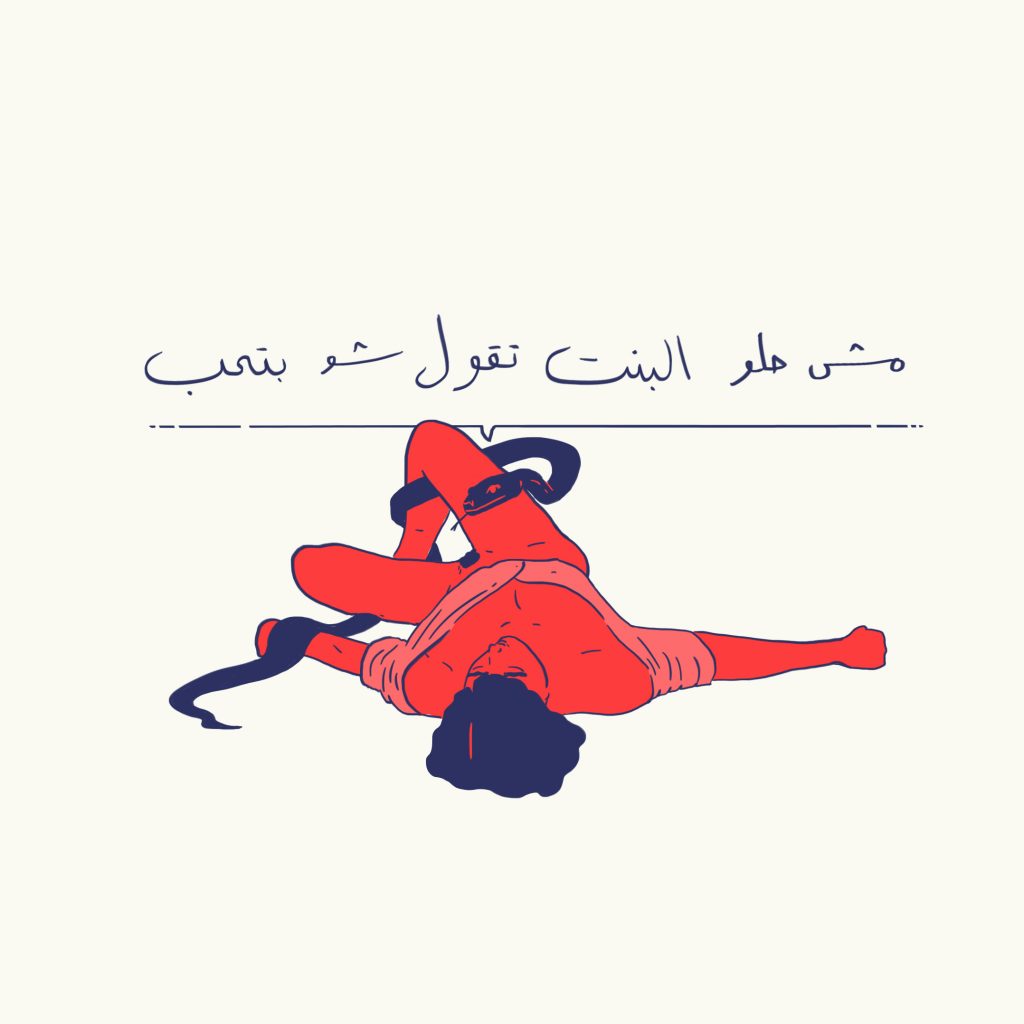
When asked about why she prefers the term ‘gay woman’ over ‘lesbian’, Hana says that she feels that the term lesbian has a negative connotation in Egypt.
“People use this term to sexualize us, not to describe our sexual orientation,” she muses.
While female sexualization and objectification are rampant in Egypt, sexualizing gay women in particular is quite common within heterosexual/straight male circles, according to worldwide testimonies of lesbian women. Many straight men prefer lesbian porn over other porn genres, painting a certain, usually false, and hypersexualized, image about sexual intercourse between women. Thus, delegitimizing female same-sex love by reducing it to a fetish that’s usually catered for male pleasure; completely erasing complex emotions, experiences, and the agency of the women involved in the relationship.
“Men don’t accept us. They just think we’re sexy,” Hana tells Egyptian Streets based on her experience,
“When I first came out as bisexual to the guy who later became my boyfriend, telling him that I’ve previously had a girlfriend, his first reaction was Oh! That’s so cool and sexy!” says Farah*, a 24-year-old bisexual woman from Alexandria.
“Males in Egypt always imagine gay women in a certain way, like Salma Hayek and a Salma Hayek 2.0 sleeping together,’’ jokes Farah.
“It is a problem for women in the Arab region to admit to any sort of sexual activity before marriage, let alone same-sex relations,” writes El Feki in Sex and the Citadel. She reports that “regardless of their sexual preference, women who do not conform to the wife-mother mold cast by patriarchal society are also in a tight spot.”
Thus, in a male-dominated society, oppression against gay women is usually compounded by different overlapping forces, such as objectification, homophobia and female subjugation in the household and the workplace. This leads to all kinds of extreme behaviors toward gay women: from outright sexual assault to domestic violence. In some cases, males make unwanted sexual advances in response to females not being attracted to them.
Hana has felt similarly objectified, even by her male friends.
“A bisexual [male] friend once told me that he’d love nothing more than having a threesome with two gay women in love. Even [another] close male friend, who knew about my sexuality, kept offering to kiss me, and he wondered why I wouldn’t kiss him back and try and see if I like it. So, I feel like 99% we are sexualized, not just as women, but as gay women,” she recalls.
”When I come out to people, especially guys, I tend to feel very sexualized. I got a lot of “wow that’s so hot, I love it when girls are together,’’ says Sara who had experienced similar instances of sexualization because of her sexuality.
However her experience did not stop there; it reached more traumatic extents, as she was sexually assaulted by one of her male friends.
“I was raped by a guy that was supposedly a ‘close friend’ as he was trying to prove to me that I’m not gay,” she told Egyptian Streets. She also recalled how she had lost many male friends of hers once they knew about her sexuality, or because she had rejected them. “Almost every straight person invalidates my experience because I never had ‘full sex’ with a guy,” she added.
It appears that violence and sexual assault, which usually happen in Egypt against straight women, find new forms with gay women, combining the already existing misogyny with a disdain for what’s sexually non-conforming to the prevailing social norms.
“If [my parents] know, it would break them”
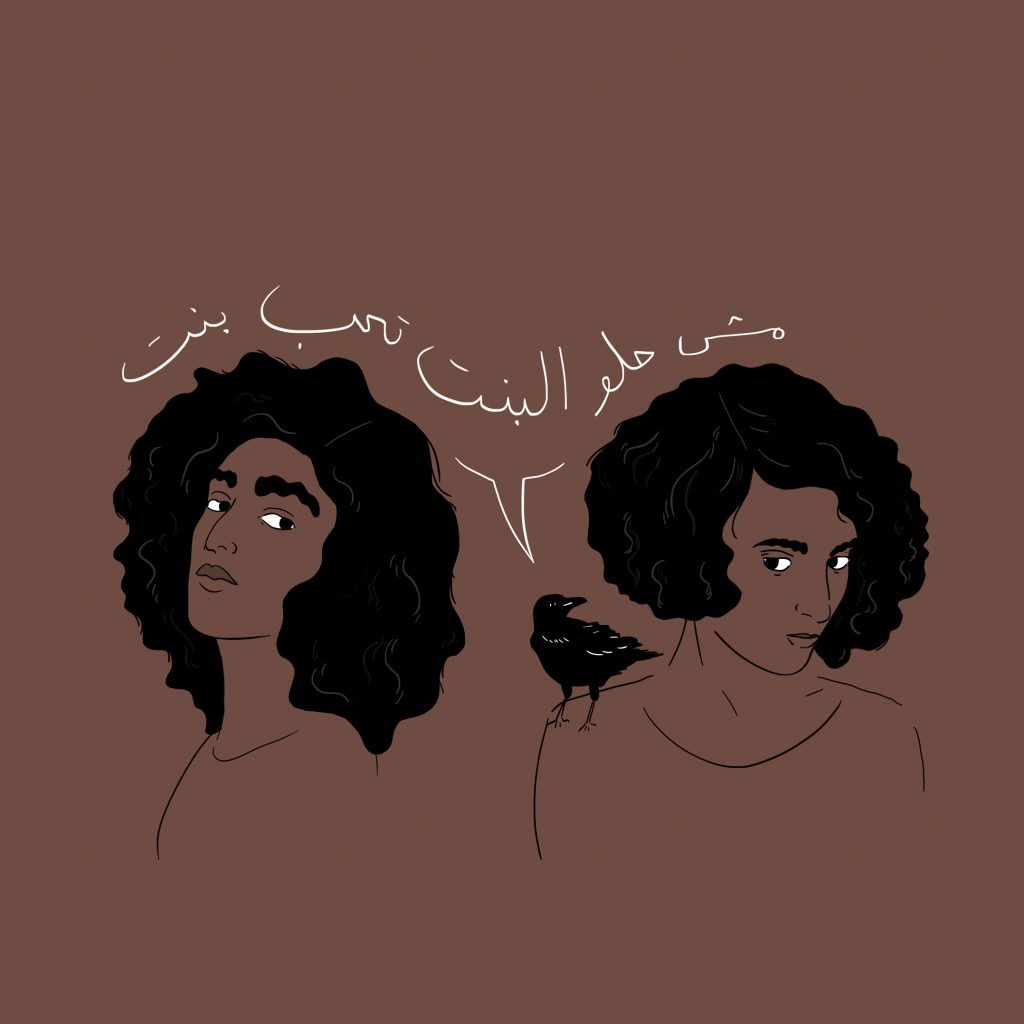
Hana came out to her brother a couple of months ago about her sexuality, despite his previous death threats three years ago.
“I feel a little bit safer, after coming out to him, but I still feel that he changed. We were so close, like best friends. Now he acts weird most of the time […] But it’s fine, we’re coexisting,” she says.
She recounts a situation that happened with her brother recently, where she tried to wrap her arms around his shoulders, but he recoiled, asking her to remove her arms. “He tells me that he’s homophobic,” she says, “he says that everybody is free to do whatever they want, but he also has the ‘freedom’ not to like one of his friends to be ‘like that’ (gay).”
When asked about her parents, she responds by saying that if they know the ‘real her,’ it “wouldn’t just break their hearts, it would break them.”
“There is a general assumption that lesbians are more tolerated by society than gay men,” EIPR’s Gender Right’s Officer tells Egyptian Streets. “But lesbians are being subjected to all sorts of punishments by their family members, this is augmented by the fact that beating women, mistreating them and locking them up in homes are widely acceptable ways of disciplining women.”
“He was willing to kill me and three years later, he hugged me.”
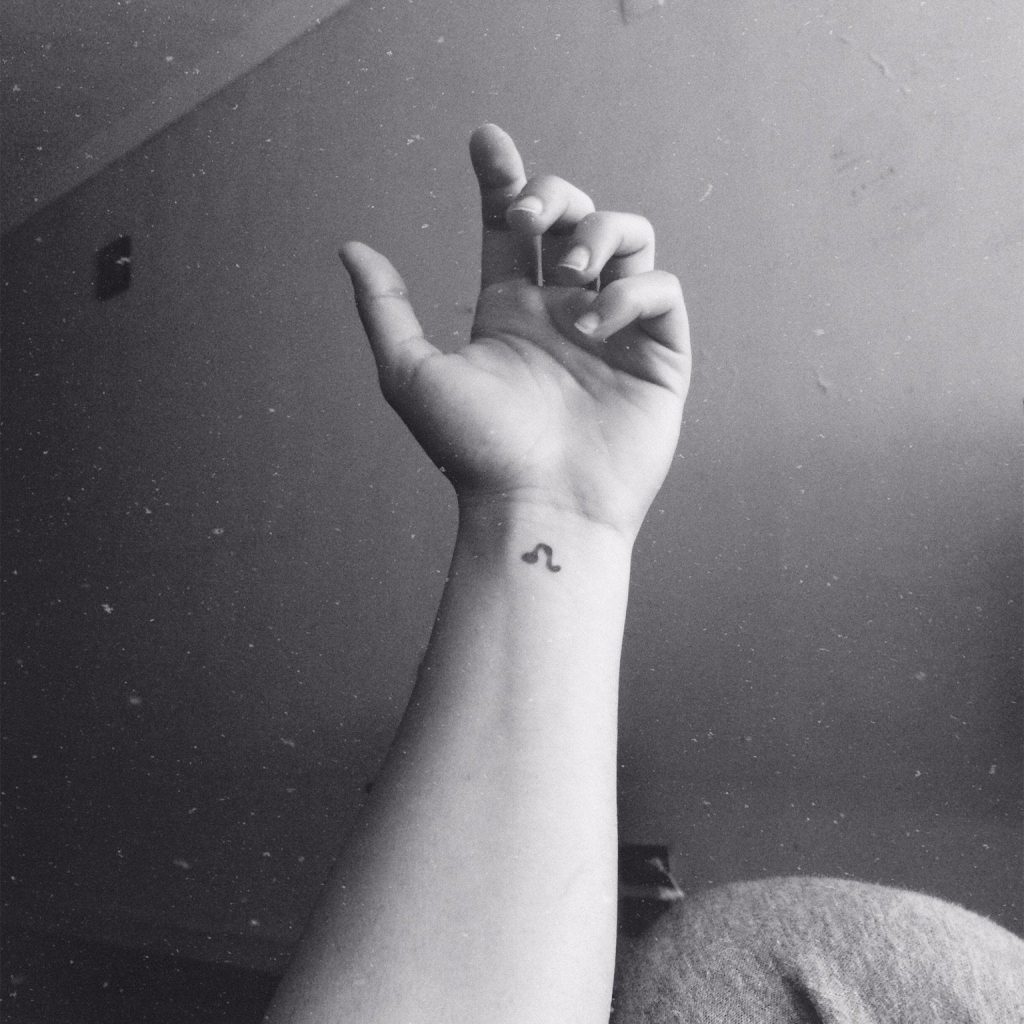
Sara found support within some family members and from a good network of queer friends. She is particularly fond of her mother’s support, contrary to her father’s lack of support.
“She’s a political activist and a really beautiful person so she’s the one who mostly helped me grow and become the person that I am today,” Sara says of her mother.
Moreover, both Sara and Hana feel grateful for being surrounded by understanding friends, which makes their life a lot easier in Egypt. They enthuse that their friends helped them through the journey of self-acceptance, and discovery of their sexuality.
In a broader sense, EIPR’s Gender Rights Officer believes that “the crackdown [in 2017] allowed us to discuss issues that wouldn’t have been normally discussed.”
“I think it was an educational experience for many people who were homophobic and/or queerphobic just because they did not know any better,” adds the officer.
Gay women have always existed in Egypt. They have always been pushed underground, and their suffering overshadowed and marginalized. This article tackls Sara and Hana’s stories. They are examples of women who were brave enough to speak out, and were privileged in many regards to find support around them.
However, it’s safe to assume that there are many other gay women who find it hard to come to terms with their sexuality, and others who exhibit self-hate, sometimes reaching the point of suicide. There are gay women from all social and economic background from Alexandria, to Assiyut and to Aswan. Despite their differences, they’re facing a society which denigrates womanhood; a male-dominated society which has prevented them from organizing as gay women, from expressing themselves and from gaining their fundamental rights. Thus, the very least we can do is to help these women tell their stores to help better reflect a reality that Egyptian society has been consistently trying to deny.
The more these women get visibility, the more likely we’ll collectively deal with the issues they raise. Hana’s experience with her brother provides an apt example about this.
“He was willing to murder me,” she says, “and three years later, he hugged me after I came out to him. So… there’s progress”.
* All names have been changed for obvious safety reasons.
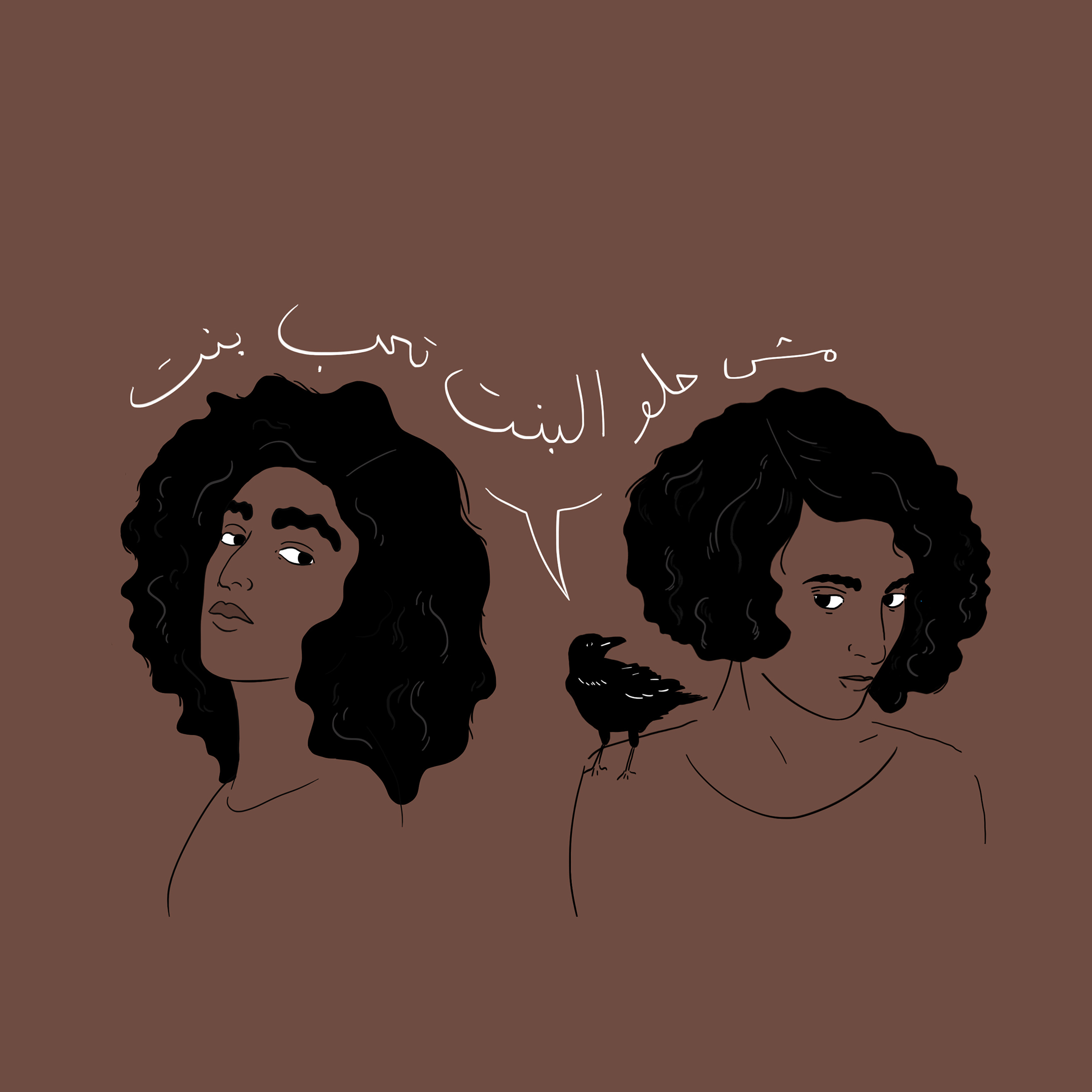


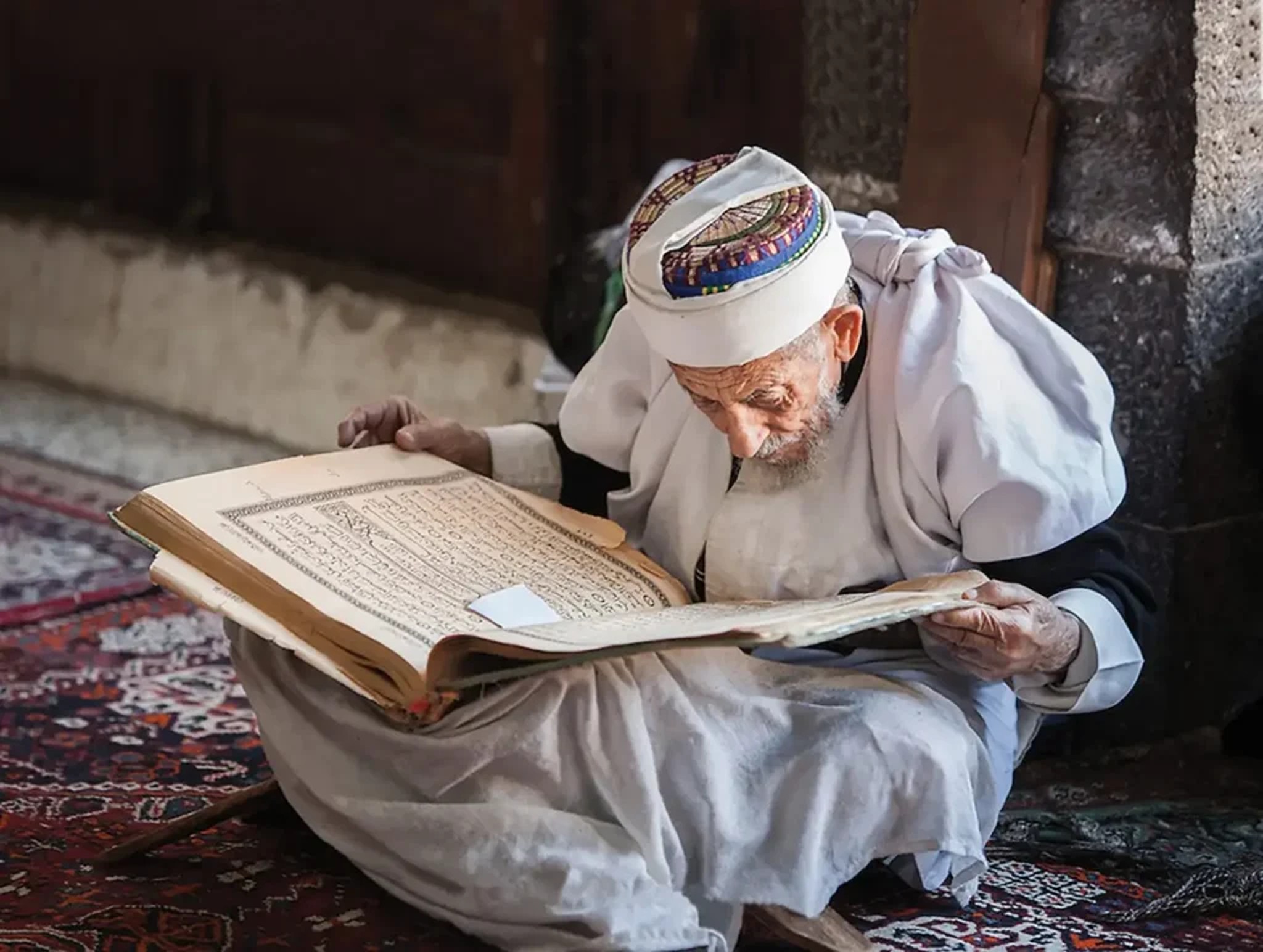



Comments (3)
[…] read more about the local LGBTQ+ community, Egyptian Streets talked to gay women in Egypt to know how difficult it is to be a queer woman in a patriarchal system where they are […]
[…] di Egyptian Streets traduzione di Ginevra Campaini ©2018 Egyptian Streets – Il Grande Colibrì foto: Egyptian […]